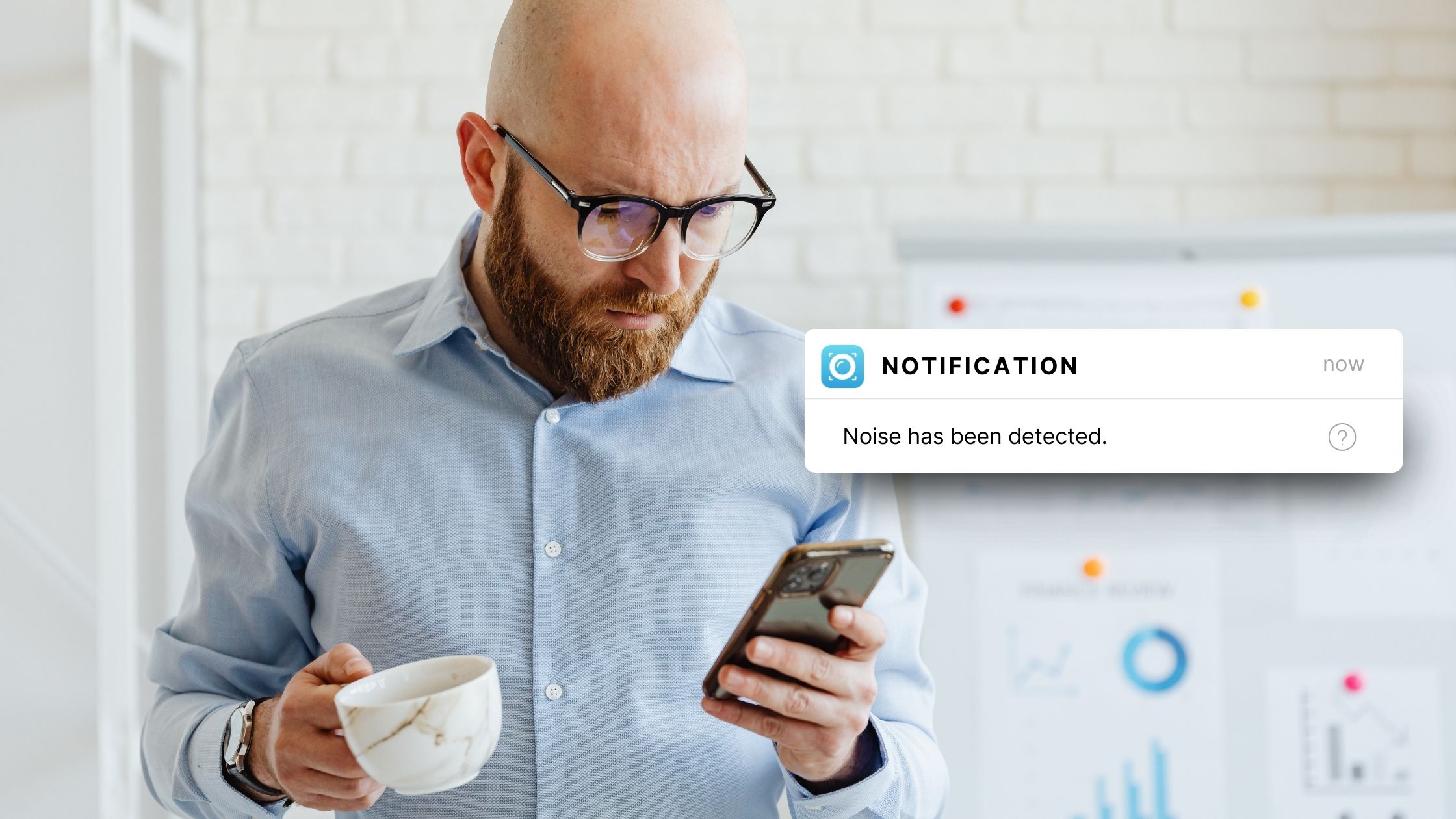

Listen Up: Why Audio Surveillance is a Must-Have Feature in Modern Security Systems
- 2. 5. 2023 03:30
Security cameras have become a staple in our home security, providing a sense of safety and security.
However:
While most people are familiar with the visual capabilities of security cameras, audio surveillance is a topic that needs to be more widely understood.
In this article:
We will provide an overview of audio surveillance in security cameras, including its advantages and disadvantages, best practices for use, and privacy concerns related to this technology.
Do Security Cameras Have Audio?
There are generally two types of security cameras: those with audio capabilities and those without. Cameras with audio capabilities can capture sound and video, while cameras without audio can only capture visual information.
Essentially:
Note that laws regarding audio surveillance vary depending on the region. Some jurisdictions require to obtain consent from those being recorded before using cameras with audio capabilities. In other regions, audio surveillance is strictly prohibited, while in some places, it is only allowed in certain circumstances.
Do Security Cameras Record Audio?
Whether security cameras record audio or not depends on the type of camera being used. Some security cameras come equipped with audio capabilities, allowing them to record sound and video. These cameras typically have built-in microphones that capture audio within a specific range.
When using security cameras with audio capabilities, it’s important to be aware of the potential privacy concerns related to audio surveillance.

How to Use Security Cameras With Audio?
Choose a Security Camera With Audio Capabilities
Before using a security camera with audio, ensure the camera you choose can capture sound.
Some of the best security cameras with audio capabilities include the Nest Cam IQ Outdoor, the Arlo Pro 3, and the Ring Spotlight Cam.
It’s important to note that while these cameras are among the best in audio capabilities, it’s also important to consider other factors such as video quality, ease of use, and overall security features when choosing a security camera.
Install and Set Up the Camera
Follow the manufacturer’s instructions to install and set up the camera. This may involve connecting the camera to a power source, connecting it to your home network, and configuring the camera’s settings.
Install the Security Camera App
Most security cameras have a corresponding app that allows you to view the live feed and recorded footage. But they are often unreliable.
We recommend installing ZoomOn app on your smartphone or tablet. This app supports a wide range of cameras and is reliable and secure.
- Download the ZoomOn Home Security app. You can download the app from the App Store or Google Play, depending on your device.
- Add the camera to the app. In the app, tap the „Pair my camera” button and choose your type of camera.
💡TIP: How do I know if I have ONVIF or HOMEKIT camera? Find out right away!
- Configure camera settings. Once the camera is added to the app, you can configure settings such as motion detection, audio recording, and notifications.
- View and manage footage. With the camera set up and connected to the app, you can now view live footage and recorded footage from anywhere using the app.
Enable Audio Recording
Ensure that audio recording is enabled in the ZoomOn app’s settings. You may also adjust the microphone’s sensitivity and set up notifications for when audio is detected.
Test the Audio
Once the camera is set up and the app is installed, test the audio to ensure it works properly. You can do this by speaking near the camera and checking to see if the audio is being recorded and transmitted through the app.

Advantages and Disadvantages of Audio Security Cameras
Advantages
➕ Enhanced security: Audio surveillance can provide an added layer of security by allowing you to hear sounds that may not be visible on the video, such as conversations or noises in another room.
➕ Improved situational awareness: Audio surveillance can help you better understand a situation by providing additional context to the visual information provided by video.
➕ Evidence gathering: Audio recordings can serve as valuable evidence in legal proceedings, providing additional information that may not be visible in video footage alone.
➕ Deterrent effect: The presence of audio recording equipment can serve as a deterrent to potential intruders or criminals.
Disadvantages
➖ Privacy concerns: Audio surveillance raises significant privacy concerns, as it can record private conversations and other sensitive information without consent.
➖ Legal and ethical issues: Laws and regulations regarding audio surveillance vary by jurisdiction and must be followed to avoid legal and ethical issues.
➖ Technical limitations: Audio recordings may be of poor quality, making it difficult to understand or identify sounds.
➖ Additional costs: Audio surveillance equipment can add to the cost of a security camera system, as it requires additional hardware and storage capacity.
Best Practices for Audio Surveillance in Security Cameras
Audio surveillance can be a valuable tool for enhancing security and situational awareness. Still, it must be implemented and used responsibly to avoid legal and ethical issues.
For security cameras with audio surveillance, follow these best practices:
1. Comply with Applicable Laws and Regulations
Audio surveillance laws vary by jurisdiction and must be followed to avoid legal issues. Research and understand the laws and regulations governing audio surveillance in your area before implementing them in your security camera system.
2. Get Consent
In some jurisdictions, obtaining consent from individuals being recorded is required. Even if it is not legally required, obtaining consent is an ethical best practice to ensure transparency and respect for privacy.
3. Notify of Recording
It is important to post signs in areas where audio surveillance is in use to notify individuals that they are being recorded.
4. Limit Recording to Public Areas
Private areas such as bathrooms, bedrooms, and other areas where individuals have a reasonable expectation of privacy are generally prohibited from recording audio.
5. Regularly Review and Purge Recordings
Recons should be regularly reviewed and purged according to applicable laws and regulations to protect privacy and prevent the misuse of recorded information.
Conclusion
Security cameras with audio capabilities can provide additional benefits for enhancing home security and situational awareness.
However:
The use of audio surveillance must be balanced against potential privacy concerns and legal and ethical obligations.
It is essential:
Carefully consider the benefits and disadvantages of audio surveillance before implementing it in a security camera system and follow best practices to ensure compliance with applicable laws and regulations and respect for individual privacy.
By doing so, you can effectively utilise audio surveillance to enhance home security without compromising privacy or violating legal and ethical standards.

FAQ: Do Security Cameras Have Audio
Yes, CCTV cameras can record audio if they have an integrated microphone or an external microphone is connected to them.
CCTV cameras with an integrated microphone or support of an external microphone can record audio. Some of the best CCTV cameras with audio include the Nest Cam IQ Outdoor, the Arlo Pro 3, the Ring Spotlight Cam, and the Reolink Argus 2.
Some of the cameras that are known for their excellent audio quality include the Nest Cam IQ Outdoor, the Arlo Pro 3, the Ring Spotlight Cam, and the Reolink Argus 2. These cameras have built-in microphones that capture clear and detailed audio, making them ideal for security and surveillance purposes.
- 2. 5. 2023 03:30





